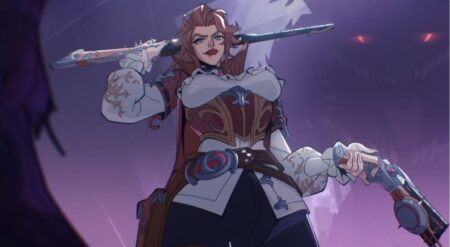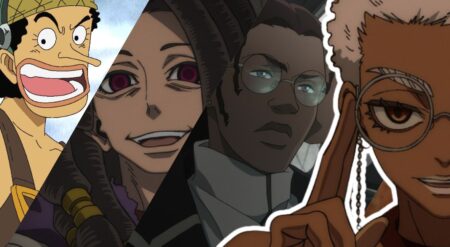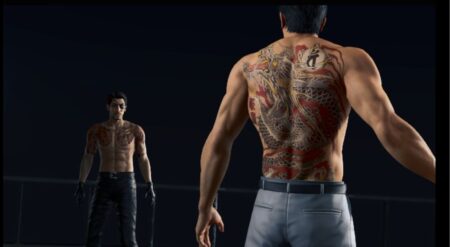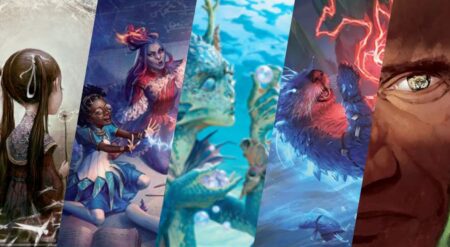
Gamora is the most dangerous woman in the universe. The daughter of Thanos and a Guardian of the Galaxy, the Zehoberi assassin turned hero is brought to life in the Marvel Cinematic Universe (MCU) by Zoe Saldana. Now, I have loved this talented Afro-Latina’s work since she was Eva in Center Stage. When I realized she was going to be a superhero I was excited to see a character played by an actress I’ve identified with for 14 years, not to mention my love for her rendition of Uhura in the rebooted Star Trek franchise. When it comes to her character, Gamora, she has been shown as a highly effective killer, with a moral compass that’s unmovable, and a troubled past that was revealed in Avengers: Infinity War.
Gamora was introduced to the MCU in James Gunn’s Guardians of the Galaxy (2014), starring alongside Chris Pratt (Star-Lord), Dave Bautista (Drax), Bradley Cooper (Rocket Raccoon), and Vin Diesel (Groot). Immediately upon her introduction, Gamora is shown to be the strongest, deadliest, and most well-trained fighter on screen. She is a soldier, assassin, and wanted on over a dozen counts of murder. When she meets Star-Lord, her introduction tells us all we need to know about her: “I go by many names, Earthian, but I’m sure the one that most know me by is Gamora, the deadliest woman in the whole galaxy.” Her fight scenes have some of the best fight choreography in the MCU and they establish the fact that she isn’t a woman to mess with.
All of that being said, the first Guardian’s movie focuses more on her relationship with Star-Lord and less about who she is beyond her swordsmanship. We know that she is deadly, and stronger than Star-Lord in a fight but ultimately she isn’t pushed beyond the strong female character in her individual development. We learn that she the daughter of the Mad Titan, taken from her world when she was a child and is an enemy of the throne and by extension her sister Nebula. The writers set up pathways for development but they aren’t explored.
Now, this doesn’t mean that Gamora’s stature in the MCU isn’t important. She is the daughter of the looming villain and her strength puts her in the books as a great character to root for and follow. She just leaves me wanting more. In the MCU, as much as it’s about fight scenes, CGI, character make-up and comics, the movies are also about developing characters into dynamic points of empathy for us to root for. I needed that. I needed more of who she is in addition to what she could do.
In Guardian’s of the Galaxy: Vol. 2, we see a fierce Gamora and we start to see more depth to her character and her origins. For her second appearance, we watch her develop her relationship with Star-Lord and more importantly we begin to understand the rivalry between her and Nebula, and ultimately see them reconcile. We learn of the abuse Thanos subjected them to and how he bred the hatred between them and we see an explored place for Gamora: guilt. It’s revealed that Gamora’s talent for fighting directly resulted in the torture of her sister. The guilt Gamora shows is the first time we get a personal depth shown which isn’t focused on our main character. However beautiful the reconciliation with her sister is, it’s squished between Drax and Mantis and Star-Lord’s own daddy issues.
Now that the landscape of Gamora’s character arc has been set, it’s time to talk about Avengers: Infinity War. In her most recent appearance in the MCU, she solidifies the story. Her knowledge of Thanos informs the audience and begins to set the stage for the final events of the film and lay the stakes. She explains his power and although there is fear in her voice, Zoe Saldana’s portrayal also shows her determination. When It’s clear that Thanos is coming for the Infinity Stones, Gamora makes it known to Star-Lord – her love interest which was solidified in Guardians 2 – that her life is not as important as stopping Thanos. She makes him swear to kill her but gives no information as to why. This one of the first moments we see Gamora’s dedication to saving the universe and putting its safety above her own.
When they encounter Thanos for the first time Star-Lord is given the moment to fulfill his promise. After seemingly killing her father, she falls to the floor and cries, but he isn’t dead. Instead, he holds her and we see Star-Lord hesitate, although Gamora will never falter, even when she says “I love you.” When he pulls the trigger to kill her, Thanos stops him, turning his gun into a harmless toy with the Reality Stone. In this exchange, we see a range of unprecedented emotions. We not only see Gamora’s sadness at killing her greatest enemy, and in many ways the reason she is who she is, but we see her cement her relationship with Star-Lord and stay the course. Not only do we see Gamora in different emotional lights but we also gain a deeper understanding of her connection to Thanos beyond just being called his daughter and how much of an impact he had on her life.

At this point in her career on screen, we don’t know much about her past, at least not the exact events that formed her. We know she was taken from her planet by Thanos, we know he abused her and Nebula, and we know she left. In Infinity War we see behind her curtain of stoicism and into her childhood. In a flashback, we see on her home planet and the instantaneous bond Thanos felt. While half of her planet’s population is about to be slaughtered, a baby Gamora fights back and catches Thanos’ eye. He takes her hand and at this moment, with the screams of the Zehoberi people in the background, we see the tenderness in Thanos’ eyes and hear a father talking his child as he explains his mission for balance.
Gamora is a child and this is the moment we realize that as much as the narrative of abduction is true, she wasn’t taken away kicking and screaming. Instead, we see the start of a bond, a child going off with her father, and we understand how she began her journey. A mad man and a murderer, Thanos is her father, and her small hand in his highlights the pain she felt when she thought she killed him. It gives us a window into her development and her connection to him, one that as any other cycle of abuse isn’t easily broken. As her narrative progresses it’s clear that her stoicism and dedication to what she sees as good is, in many ways, a remnant of him. She doesn’t care about her life as long as the universe is saved. And as we see, even her sister’s life means nothing when life is at stake.
As I mentioned above, Guardians 2 gave us a look into the relationship between Gamora and her sister, Nebula. Although it was a storyline that was compressed for the larger narrative, in Infinity War, the bond and love is there, if only in Gamora’s pain. The only time Gamora sees her sister, Nebula is being ripped apart, tortured by Thanos to reveal the location of the Soul Stone, or at least that’s how it appears. As much as the trauma is on Nebula’s physical body, when Thanos sets Gamora in front of her broken sister, the emotional toll it takes on her is written across her face and we know, as an audience, this torture is meant for her.
Gamora cries silently, holds in her pain, attempts to find that stoicism and ruthlessness we were shown in Guardians 1, and she doesn’t waver. Ultimately this scene calls back to information we learn in Guardians 2, Gamora is always the reason for Nebula’s pain, but this time there is a reason. With that act, she becomes the only person in the movie to keep the stone to herself in the face of death. Now, neither her love for Star-Lord, for Gamora, or herself is strong enough to outweigh the fate of the universe. In the end, Doctor Strange gives up the Time Stone when it comes down to the stone or Tony. And Wanda’s prioritization of her love, Vision, over the fate of the universe leads to the completion of the Infinity Gauntlet.
However, like all heroes’ stories in the movie, she fails. Nebula’s detached eye plays a recording showing her revealing to Nebula that she alone knew where the Soul Stone was hidden. Having this used against her, she ends up walking to her death. In order for Thanos to obtain the Soul Stone he must kill the only thing he loves, his daughter. A movement far away from the comics where his love is centered around Death, Thanos cries. Gamora dies, and Thanos succeeds. Although she fails, her stand is important. It creates a character whose morals and sense of duty outweighs personal preservation. She would give her life to save lives, a fact that would remain hidden without this development in Infinity War.
Her death is the part that has been contentious among fans. It has led some fans to call her storyline in Infinity War a disservice to her character and go as far as saying she was “fridged.” The term is one I’ve used on episodes of the podcast, specifically for the women of the Arrowverse, and refers to a trope in comic books (and other media) whereby female character is injured, killed, or depowered as a plot device. Although the brutalization of female characters only to progress the story of the leading man is common, Gamora’s death and connection to Thanos are done to ground her in her own narrative.
Her narrative is one of trauma, but also one of strength. Strength of will, strength of body, and ultimately strength of spirit. When faced with Thanos and pain she chooses to endure it, carry it, and not lose herself. This is a hero’s story and one we see shown with many characters. For Gamora, an assassin and criminal, this is a dynamic we don’t see elsewhere in the MCU. She has always been physically strong and she has been a source of strength for Peter, but to see her hold the weight of the universe and not falter, she receives a purpose in the universe. Not only is she unyielding in battle but also in her convictions. Her death is tragic, but in a movie filled with deaths and tortures of many of it’s character’s it is not unique. Along with her, Loki, and Vision share similar fates, the former fueling Thor’s rage and revenge throughout his arc in the film and in many ways playing nothing more than a plot device to further Thor’s arc.
In fact, her death doesn’t propel a hero to win but causes Star-Lord’s moment of weakness, letting Thanos win and escape. In the Infinity Gauntlet event, her death is used to directly move Adam Warlock to action and ignite his will to defeat Thanos. The arguments have been made that she qualifies as a weak character or a fridged character because Thanos’ development, but this ignores the fact that Gamora was the only reason Thanos was kept at bay for so long, and that her character needed development beyond large guns and sword fights.
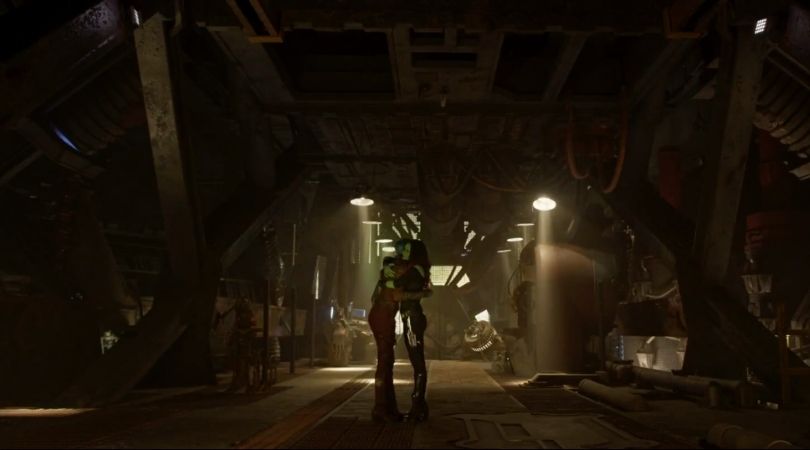
To say Gamora’s journey is nothing but the dampening of a strong character is to miss the point of her arc in the film. She is traumatized because of her background, not unlike the men that surround her in the rest of the film’s cast – Thor watched his brother killed in front of him, the death of his father, mother, and his entire people up until this point. Some have also called her character made weak by crying, or giving up by accepting her death and entrusting Star-Lord to end her life. However, by saying she can not cry because it removes the strength and skill she’s shown to have in her past movies, it stifles her character in a land of one-notes and refuses her the emotional development of the men in the film.
A strong woman can cry and remain strong. Just like Star-Lord, Thanos, Thor, and Iron Man can all cry in the film and maintain their sense of power and agency. Her expression of emotion does not overshadow the fact that she was willing to die to protect the Soul Stone and even let her sister die, leaving her in a place above characters in the movie that placed personal connections above the fate of the universe. Although she may have moments of emotion, they don’t break her mission and her tears do not erase her accomplishments, kills, or standing as the deadliest woman in the galaxy.
We get to see Zoe play a character that is not only fighting every step of the way but one that has a history and a life beyond her fighting and beyond her love interest. She has relationships, emotions, and bonds and we get to peel back the layers of her story to see how she came to be. With the Soul Stone in play and Guardians of the Galaxy 3 already announced, it’s clear to me that she will return. As someone who was hoping for the MCU to give Gamora the spotlight she deserves, I feel like they accomplished that. Her arc in Infinity War is important to the story and to her character. She is dynamic now. She wasn’t rushed and all of the ties she had to other characters through her relationships with them were cemented. But with the snap and all of the Guardians turning to dust, Gamora’s death is one of many and we’ll have to wait for the untitled Avengers 4 coming out May 3, 2019.

